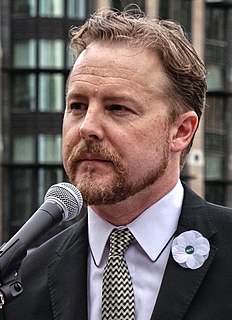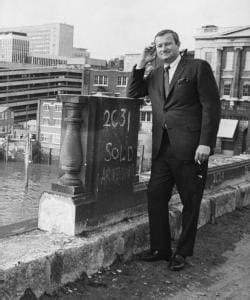A Quote by Jean-Jacques Rousseau
With children use force; with men reason; such is the natural order of things. The wise man requires no law.
Related Quotes
There never was a law yet made, I conceive, that hit the taste exactly of every man, or every part of the community; of course, if this be a reason for opposition, no law can be executed at all without force, and every man or set of men will in that case cut and carve for themselves; the consequences of which must be deprecated by all classes of men, who are friends to order, and to the peace and happiness of the country.
Reason in a creature is a faculty of widening the rules and purposes of the use of all its powers far beyond natural instinct; it acknowledges no limits to its projects. Reason itself does not work instinctively, but requires trial, practice, and instruction in order gradually to progress from one level of insight to another.
For Christians above all men are forbidden to correct the stumblings of sinners by force...it is necessary to make a man better not by force but by persuasion. We neither have authority granted us by law to restrain sinners, nor, if it were, should we know how to use it, since God gives the crown to those who are kept from evil, not by force, but by choice.
The libertarian approach is a very symmetrical one: the non-aggression principle does not rule out force, but only the initiation of force. In other words, you are permitted to use force only in response to some else's use of force. If they do not use force you may not use force yourself. There is a symmetry here: force for force, but no force if no force was used.
There is no question that Darren Wilson caused the death of Michael Brown by shooting him, but the inquiry does not end there. The law authorizes a law enforcement officer to use deadly force in certain situations. The law allows all people to use deadly force to defend themselves in certain situations.
No man may initiate the use of physical force against others. No man-or group or society or government-has the right to assume the role of a criminal and initiate the use of physical compulsion against any man. Men have the right to use physical force only in retaliation and only against those who initiate its use. The ethical principle involved is simple and clear-cut: it is the difference between murder and self-defense.
So long as men desire to live together, no man may initiate the use of physical force against others. . . . When a man attempts to deal with me by force, I answer him by force. It is only as retaliation that force may be used and only against the man who starts its use. No, I do not share his evil or sink to his concept of morality: I merely grant him his choice, destruction, the only destruction he had the right to choose: his own.
Good and wise men, in all ages, have embraced a very dissimilar theory. They have supposed that the deity, from the relations we stand in to himself and to each other, has constituted an eternal and immutable law, which is indispensably obligatory upon all mankind, prior to any human institution whatever. This is what is called the law of nature....Upon this law depend the natural rights of mankind.
Every man, and every body of men on earth, possesses the right of self-government. They receive it with their being from the hand of nature. Individuals exercise it by their single will; collections of men by that of their majority; for the law of the majority is the natural law of every society of men.
For in a government of laws and not of men, no man, however prominent or powerful, and no mob however unruly or boisterous, is entitled to defy a court of law. If this country should ever reach the point where any man or group of men by force or threat of force could long defy the commands of our court and our Constitution, then no law would stand free from doubt, no judge would be sure of his writ, and no citizen would be safe from his neighbors.
The third class consists of men to whom nothing seems great but reason. If force interests them, it is not in its exertion, but in that it has a reason and a law. For men of the first class, nature is a picture; for men of the second class, it is an opportunity; for men of the third class, it is a cosmos, so admirable, that to penetrate to its ways seems to them the only thing that makes life worth living. These are the men whom we see possessed by a passion to learn.








































